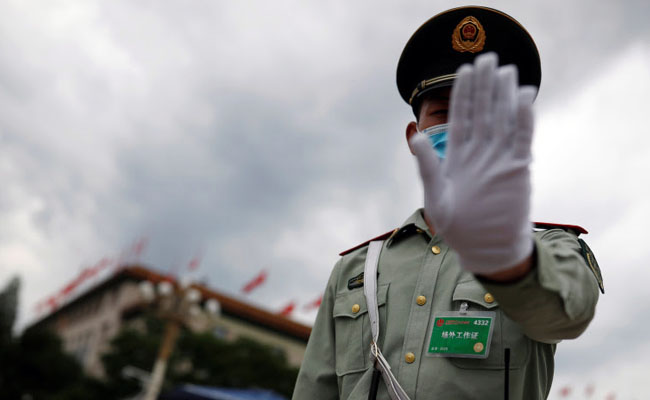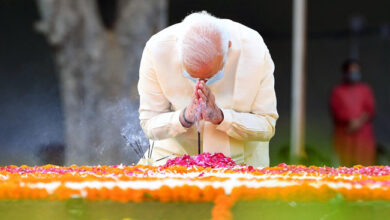China’s COVID-19 countermeasures include restricting press freedom

By Iris Hsu/CPJ China Correspondent and Steven Butler/CPJ Asia Program Coordinator on June 3, 2020 12:07 PM EDT
In the nearly 71 years of Communist Party rule in China, the country’s citizens have enjoyed brief periods of relatively free speech, as during the abortive Hundred Flowers Campaign in 1956-57, or the run-up to the 2008 Beijing Olympics, when investigative journalists covered local corruption and pollution.
When the coronavirus outbreak first began spreading in Wuhan, Hubei province, China’s press enjoyed another brief period of flourishing before authorities cracked down.
On February 10, the state-owned magazine China Newsweek reported on how Chinese leaders missed a critical window to control the outbreak, something the government now strongly denies. Later that month, the Caijing news magazine published an interview with a health expert who asserted that local hospitals and health authorities had lied about the severity of human-to-human transmission.
In March, China Newsweek published a story alleging official negligence surrounding the collapse of a hotel that was used to hold people during virus quarantines; People Magazine interviewed a doctor who was reprimanded by hospital management for sharing patients’ positive coronavirus test results with his colleagues; and medical trade-news website DXY reported that many frontline medical workers had not received the financial subsidies promised by authorities.
Even the pro-government tabloid Global Times published an article alleging that the Wuhan Center for Disease Control and Prevention, a government body, had rejected local hospitals’ early alerts about the virus.
But the Chinese government quickly exerted old censorship tools, such as forcing outlets to take down articles, as officials tried to assert the state’s narrative of China’s success combatting the virus.
As early as February 3, Chinese President Xi Jinping directed Communist Party members and local authorities to tighten control and to ensure that the internet is “always filled with positive energy” as part of epidemic prevention efforts. Local authorities, especially the national Cyberspace Administration and regional Public Security Bureaus, issued notices in early February warning citizens against posting any “unverified information” related to COVID-19 on any social media platforms, including in private messaging groups.
The Global Times article, the People Magazine interview, and dozens of other pieces of critical reporting have since been scrubbed from their outlets’ websites. On March 23, students and professors at Nanjing Normal University’s School of Journalism and Communication published an investigative report titled “the disappeared 41 epidemic reports,” estimating that at least 41 news reports published by Chinese outlets had disappeared from the internet since January 23.
According to that report, most of the deleted articles contained “negative facts” about authorities’ failures, the difficult situation in the Hubei province, or pessimist views about the outbreak. Less than 24 hours after it was posted, CPJ was no longer able to access the students’ original report.
“There must be a place for [those reports] in history,” the students wrote in an editorial in a campus magazine.
The government also discovered new methods of censorship, like forcing independent journalists into quarantine, allegedly to halt the spread of the virus.
Chen Qiushi, a video journalist who went to Wuhan to cover the virus, disappeared on February 6 after informing his family that he planned to report on a temporary hospital. According to Chen’s friend who spoke with CPJ, he is likely under “forced quarantine.”
On February 26, Li Zehua, another video journalist who went to Wuhan, also disappeared. He reappeared two months later, saying in a video that he had been placed under “supervised quarantine” in Wuhan for two weeks, and then for an additional two weeks at his hometown, after national security officers knocked on his door in late February.
Irony eluded Chinese officials when the Cyberspace Administration of China published an article applauding Wuhan’s video bloggers for “documenting” their lives under quarantine in the city on April 17, seventy-one days after Chen disappeared in the city. On May 14, authorities arrested video journalist Zhang Zhan for doing precisely that, and then charged her with “picking quarrels and causing trouble.” If convicted, she could face up to five years in prison.
Even saving deleted articles has become a crime, with the April 19 arrests of Cai Wei, Tang, and Chen Mei, who volunteered for the “Terminus 2049” project, which collects and republishes news articles and social media posts that either have been censored or might be censored in the future.
Cai and Chen were charged with the crime of “picking quarrels and provoking trouble,” and Tang was released on bail on May 13, according to news reports.
As the door closed on open reporting within China, the country’s officials also targeted media outside of the country.
On April 8, the People’s Liberation Army Daily, an official military newspaper, accused Western media outlets of obstructing global efforts to combat COVID-19, saying, “When China is helping the international society to fight COVID-19 while upholding the vision of a community of common destiny, some Western media and politicians are still poisoning the global efforts with sensational and wrong words and deeds.”
Chinese embassies and consulates abroad have pursued an aggressive wave of so-called “wolf-warrior” diplomacy, often aimed at the media. On April 14, the Chinese embassy in Japan issued a statement rejecting commentary in Japanese newspaper Yomiuri Shimbun blaming the global health crisis on the Chinese Communist Party’s mishandling of the outbreak.
“The Yomiuri Shimbun article has nothing in it but malicious attacks on the Chinese,” said Foreign Ministry spokesperson Zhao Lijian. “It shows not the slightest respect to the professional ethics of journalism, moral standards and basic conscience of mankind.”
On the same day, Australian tabloid The Daily Telegraph received a letter from the Chinese consulate in Sydney asking the paper to praise China’s handling of the COVID-19 outbreak. The paper responded by publishing a “censored” version of the letter, poking fun at China’s censorship practices.
But while transparent and factual reporting on the virus may be harshly restricted by Chinese authorities, Chinese state media and government bodies have pushed out 90,000 tweets since early April to spread a conspiracy theory that COVID-19 originated from a U.S. lab, according to news reports.
Iris Hsu is CPJ’s China correspondent. Prior to joining CPJ, Hsu interned at Human Rights Watch, Center for Arms Control and Nonproliferation, and the Atlantic Council. Hsu obtained her master’s degree in international affairs from American University. She speaks Mandarin and French and lives in Taipei.
Asia program coordinator Steven Butler lived and worked in Asia as a foreign correspondent for nearly 20 years, and later was Foreign Editor at the Knight Ridder Washington Bureau. He holds a PhD in political science from Columbia University.





